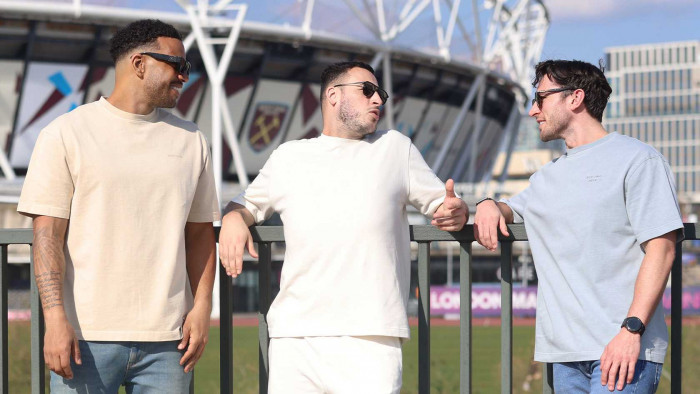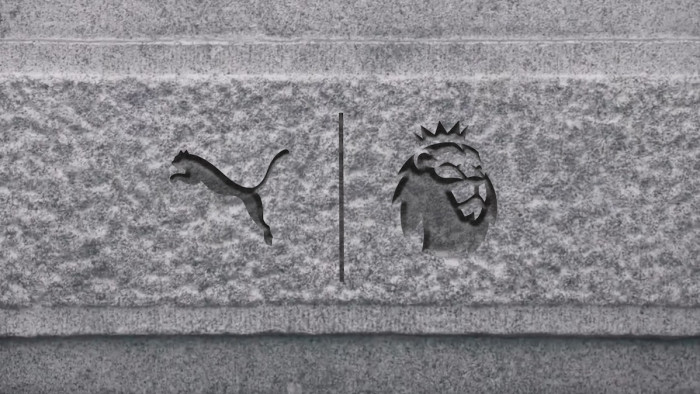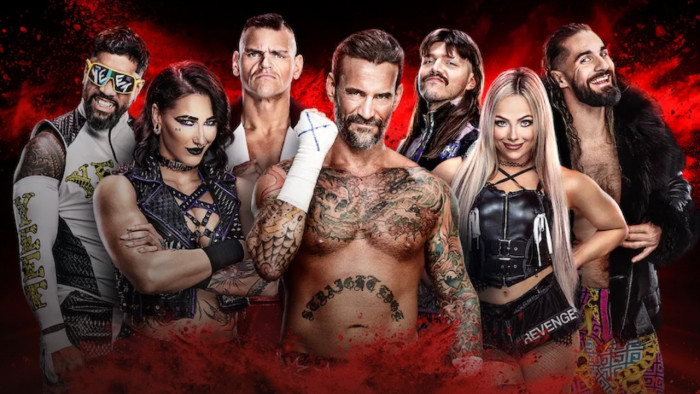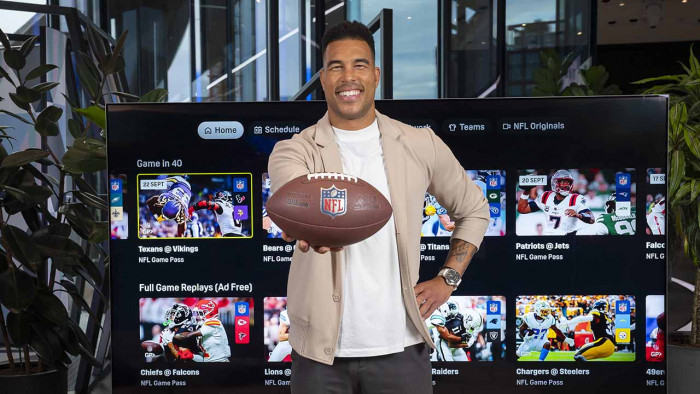ShortList’s Ben Isaacs infiltrates the bizarre world of NFL deadline day - when its superstars go up for sale
Cast your mind back to school PE lessons and the political process of picking players for a football match. Unless you were one of the talented kids, you could expect an anxious wait. As each pick was made and you stood in the playground in an ever-sparser crowd, your social standing took a hit. But imagine if, instead of just personal pride, your livelihood is on the line. Scale this up to an almost unimaginable degree and you have the jamboree we’ve come to New York to witness. Welcome to the NFL Draft, where ShortList is the only British magazine to have inside access to a peculiarly American TV event.
“The draft is the most expensive cattle call in sports,” says Nat Coombs, host of Channel 4’s NFL coverage and US sport/culture podcast, Americarnage (americarnage.co.uk). “It’s where the best players coming out of college get picked by 32 professional NFL teams. Imagine a beauty parade where the contestants are evaluated, not on hair, skin, teeth and vacuous opinions on world peace, but rather brawn, guts, speed and heartfelt opinions on the best way to hurt someone on the field.”
Some 30 prospects sit with their families in the Radio City Music Hall green room, either nervous, excited or trying to appear calm on camera as TV crews park themselves at the tables. In the spectator seats are thousands of the NFL’s most dedicated fans, ready to see the league’s future. They’ve travelled across the country and are here wearing team jerseys, adorned in face paint and – in the case of Cleveland Browns fans – barking with dog masks on. I’d seen these friendly lunatics around the city in the previous 48 hours – that’s when they started queuing for tickets. A pair of Minnesota Vikings fans with horned helmets and shields walking down the street? Not weird. The out-of-towners are making more of an effort with their outfits, but the local fans are a step ahead with the drinking. Within an hour of the start, a New York Jets fan is asleep in a bathroom.
“The NFL preaches relative parity within the league,” says Coombs, “pointing to the ever-changing range of teams that perform well, and the draft – along with a salary cap preventing teams doing a Man City – is one of the reasons. Worst record in the league last season? You get the No1 pick. It’s the equivalent of taking that guy at school who smelled of fish and spent 15 hours a day on World Of Warcraft and letting him choose between a date with Cheryl Cole or Kelly Brook.”
It’s an impossibility for a sport such as football. Premier League clubs aren’t simply competing with one another for players, they’re up against teams from La Liga, Serie A and Bundesliga. And if all Uefa leagues agreed to a salary cap and an even distribution of domestic talent to ensure any team could win the title? The top players would simply head to the Middle East for some sort of mega-league where everyone drives diamond-studded flying Bentleys.
On the clock
This year’s draft is billed as the most spectacular and memorable yet. One player, Jadeveon Clowney, elicits shrieks of excitement from every talking head on US TV – he’s a defensive beast who everyone expects to have pro quarterbacks seeking counselling. Then there’s Michael Sam – defensive player of the year in the nation’s toughest college competition, and who happens to be openly gay. But, perhaps most intriguingly, for lovers of thrill-seeking quarterbacks there’s Johnny Manziel, who in 2013 became the first freshman winner of the Heisman Trophy as the country’s top college player.
When NFL commissioner Roger Goodell informs us that Houston are now “On the clock”, fans in attendance roar their approval in a manner more befitting the kick-off of a crucial match than – in essence – an administrative task. Meanwhile, across the US, 32 million people are watching live on TV. Back in the green room, there are young men fresh out of university, who hope to end the evening as millionaires. Houston, having spent months fielding calls from rival teams asking what it would take to ‘trade up’ (for example, exchanging a couple of established star players to pick first), take almost the entire 10 allotted minutes before choosing Clowney first overall.
‘Trading up’ becomes a theme of the evening, and is part of the event that Coombs loves because it “makes Wall Street look like kindergarten – with bigger abacuses”. Now everyone’s attention turns to Manziel, AKA Johnny Football, AKA the most polarising presence in the sport. A man known for keeping calm under pressure on the field is now biting his nails on a settee.
Factory of sadness
Not long before the draft, Manziel put a picture he’d taken in Manhattan on Instagram, with the caption “We’re a long way from Hill Country! #JustAKidFromKerrville”. On the red carpet going into Radio City, he said people from his hometown don’t get moments like this. A little disingenuous, considering Kerrville has previously produced six other NFL players. And Manziel is no ‘aw shucks’ small-town bumpkin. His great grandfather used to spar with legendary boxing champ Jack Dempsey, and later became a wildcatter who struck it rich in the oil business. His father describes the family fortune as “Not Garth Brooks money, but it’s a lot of money”, which may be the most Texan sentence ever uttered.
Meanwhile, Jacksonville make Blake Bortles the third overall selection and first quarterback chosen. After a sharp intake of breath from everyone in the hall, a small group of Jacksonville supporters scream their approval. Manziel looks stunned. There is talk that Cleveland want him at four, but his phone stays silent and the team trades the spot away to accumulate extra picks for later.
Cleveland is rarely a player’s first choice of destination. The city’s fans have nicknamed their home stadium the ‘Factory Of Sadness’, because of the team’s constant underachievement. This is a city in need of a sporting hero to fill the void left by basketball’s LeBron James, who bolted for Miami in 2011. So it's shocking when Cleveland go in another direction. This is not Manziel’s first brush with adversity. In 2013 he was suspended for his part in a plan for his autographs to be sold – a no-no in the strictly amateur world of US university sports. When he returned, he taunted the opposition by miming an autograph signing and counting money. Now, such cockiness is a world away, and each passing pick, he is losing cash. Players selected outside the top 10 will get much less than ones picked earlier.
Make the call
Back at the draft, a run of teams that don‘t want quarterbacks are picking other players in the green room. Even the NFL’s normally buttoned-up Twitter account joins in, tweeting “#sadmanziel”. As everyone checks the draft order to see which teams left may need Manziel, a voice announces that Philadelphia have traded the 22nd overall pick to Cleveland. It can only mean one thing. A murmur grows before a chant of “John-ny Foot-ball“ rings out. Cleveland, in need of a quarterback, must go for Manziel now, before anyone else.
With just 10 minutes between picks, and some of that already used dealing with Philadelphia, time is of the essence. They quickly get on the phone to Manziel. His relief is palpable when he walks on to the stage and hugs the NFL commissioner. The fans – now six beers in – are on their feet going bananas, partly as they’ve been part of an ‘I was there’ moment.
This year, players choose the music that rings out when they go on stage. Manziel chooses a Drake song, where he is namechecked in the first line. He looks relieved rather than smug. His coronation turned into redemption. In one evening he got a crash course in humility, and became fully likable. ESPN reports that the team’s owner was convinced they should pick Manziel after a homeless man talked him into it. But this doesn’t seem to bother Manziel, who hit a New York club with Drake himself that night – or Cleveland fans, who snapped up 1,500 season tickets the next morning.
There’s no clubbing for me. It’s gone midnight by the time I leave the venue, and as I walk through Manhattan I see Cleveland fans high-fiving one another. “We love everyone on our team,” says one fan wearing dog make-up and an orange fedora – looking, to all the world, like a canine pimp. “Once you’re in Cleveland you’re a dawg. Whoever you are. If he’d ended up in New York or Dallas, it would’ve been bad because of the media. In Cleveland he’s less likely to get in trouble. Other teams passed on him. Now he’s got a shot.”
He may be a ‘dawg’ to Clevelanders, but he’ll also be treated like a wayward son. “I did not like him last year,” a woman in her forties wearing an old Browns jersey tells me. “It wasn’t OK that after the suspension he flashed the money sign. I was like, ‘His momma needs to grab him by the ear and teach him some manners.’ Then I thought, ‘Wait, this is Texas, it’s like a religion there. They think it’s OK.’”
The US loves a comeback story and a fallen idol who comes good. In this way Manziel is America: young, cocky, prone to bad decisions and flashing money. Whatever you call him, Johnny Manziel or Johnny Football, when it comes to NFL, you’d better get used to hearing his name.
Latest
Related Reviews and Shortlists










